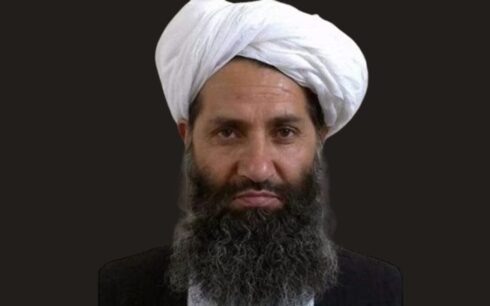KABUL, Afghanistan — In recently released photographs from a leadership meeting at the Taliban-run Ministry of Interior, chaired by Sirajuddin Haqqani, the absence of Abdul Hakim Ishaqzai, widely known as Ibrahim Sadr, has raised fresh questions about internal tensions within the Taliban.
Ibrahim Sadr, the Taliban’s senior deputy for security affairs at the ministry, is regarded as a close ally of Taliban leader Hibatullah Akhundzada. Five sources in Kandahar previously told Amu TV that Haqqani had expressed dissatisfaction with the extent of Sadr’s authority within the ministry.
The Taliban-run Interior Ministry publicized images from Sunday’s meeting — the first official photos showing Haqqani’s return to the ministry after months of absence. The meeting brought together senior Taliban officials, but Sadr’s absence was conspicuous.
Sources familiar with the matter emphasized that Sadr enjoys “direct backing” from the Taliban’s supreme leader. His nonappearance comes amid previous reports suggesting that Haqqani was frustrated over the division of powers between Ibrahim Sadr and Nabi Omari, another senior deputy at the ministry who is reportedly aligned with Haqqani.
According to sources in Kandahar and within Akhundzada’s office, the Taliban leader has previously responded to such concerns by asserting that Sadr and Omari possess equal authority within the ministry.

While Haqqani has resumed his public role, other notable Taliban officials remain absent. Abbas Stanikzai, the deputy political minister at the Ministry of Foreign Affairs, has not been seen publicly for more than 90 days. His last recorded appearance was in late January during a Foreign Ministry event.
Taliban spokesman Zabihullah Mujahid has repeatedly downplayed these absences, attributing them to “personal leave” or “medical treatment.” He has denied any internal disputes. However, several informed sources insist that the prolonged absences stem from growing dissatisfaction among Taliban officials over what they describe as the centralization of power around Akhundzada in Kandahar.
Asif Siddiqui, a former deputy speaker of the Afghan Senate, said: “Those who object or raise concerns about policies that contradict the people’s will or religious principles are increasingly sidelined.”
Despite public denials, signs of internal strain continue to emerge as the Taliban leadership faces mounting pressure from within its ranks.





